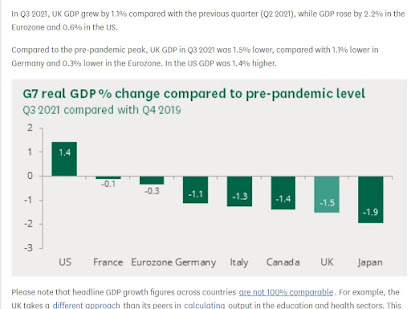Armida at Wexford Festival Opera by the Sea
I’ve never been a great admirer of Opera as lived experience, the social ritual of dressing in dinner jacket and black tie like an oversized penguin, followed by a display of outlandish stop-go exaggerated gestures, bawling and screeching and that's just the audience! I love the sound of Opera, the human voice orchestrated with symphonic rhythms as a dramatic, tender or moving experience but the full immersive shock has usually been too much, for me. Happily I had no need to concern myself about such things when I was distracted by travelling and city life. If I wanted Opera, there was plenty to be heard on stereo, if I felt so inclined.
These days I spend much more time in the country, in Wexford, a short drive from the Opera House. This made little impact on me during the years of pandemic lockdowns but this year the festival made a big splash announcing itself in unmistakable terms. Nobody in Wexford can regard themselves as properly civilised without at least a bluffer’s acquaintance with Opera. Faced with a choice, Opera goer or social outcast, I took baby steps towards the big occasion. Opera Gala and various peripheral events were despatched with ease but the big test came in the form of Dvořák’s Armida. This work was unfamiliar to me but so, it seemed, was it to everyone else so I joined a trail of stooping middle-aged penguins picking their steps though the town on a pleasant autumnal evening.
A grey suit with black shoes and a crisp white shirt is as much social refinement I can manage. I could bluff my way through a conversation about the Opera House since I attended a concert there but the full blown Operatic assault course is on a different level. The auditorium is exceptionally attractive with curved wood panelling, excellent sightlines and great acoustics. The grey overhead gantries, arching high above stalls, are an architectural wonder, an artistic statement in themselves.
Armida began well with a dramatic overture and first two acts displaying Dvořák’s full palette of colour, drama, romance and nuance. The orchestra was on top form from under conductor Norbert Baxa. The casting was superb with an outstanding female lead in Jennifer Davis and the male lead, Gerard Schneider, both delivering memorably powerful performances. Rory Dunne and Stanislav Kuflyuk also deserve special praise. The staging, lighting and design delivered sparkling effects in a restrained, minimal but very effective setting with lots of engaging visual tricks.
The great disappointment of the evening was the material itself. Armida has been called Dvořák’s forgotten opera. Having been through it, I realise this is no accident. The first two acts sparkle with dramatic interest, cunning plots and counter plots, a scheming court adviser trying to ensnare the king's daughter against her wilful protests while a marauding army of Christian invaders ravages the country. The dramatic second act ends with a flourish leaving us hoping for more riches to come. Sadly the interval drinks are the highlight of what’s left of the evening.
Powerful performances by all the cast cannot hide the descent into farce and millennial demagoguery. The narrative, almost a millennium old, recounts a wearily familiar tale of religious fanatics, political manipulation, greed and bloodlust presented as some kind of moral triumph. Europe’s ruling castes went on a madcap mission to rescue the “tomb of Christ”, inspired by religious ideology, heedless of their paradoxical belief that he ascended into heaven.
Armida’s tale was already almost half a millennium old when Tasso wrote the Italian verse on which the libretto is based. Attacking foreigners is a well-worn theme, employed by fanatics and dictators since antiquity. This parade of prejudice was exhumed from its deservedly obscure resting place at the turn of the twentieth century. Dvořák was an enterprising chap who saw the twilight of European empires as an opportunity to revive this ancient tale of militant Christianity triumphant. He would doubtless have grasped the appeal among the wizened gentry of the Holy Roman Empire, famously described as being neither Holy, Roman nor a proper empire. The old familiar themes, penned for the Habsburgs shortly before their abrupt removal, are exhumed in Wexford; untrustworthy foreigners, evil Islamic kingdoms, easily distracted Christian warriors manfully resisting female trickery and dark skinned treachery. I noticed two priests in the auditorium, looking especially pleased with themselves.
Armida’s second part is so dismal it’s truly memorable. It would hardly be noticed, in the final riotously off-message act, if Donald Trump strode on waving a MAGA cap or George Bush rode onstage astride a camel emblazoned “Mission Accomplished”. Armida has the makings of an Operatic parody of “The Producers”, the brilliantly farcical account of a doomed production in the worst possible taste. It’s revealing to note that Armida would probably be the focus of angry protests if it were staged as a play or a movie. It’s assumed, correctly it seems, that nobody pays much attention to the goings on in opera houses, no matter how outrageous. This deserves further investigation. Anyone for Montezuma the opera, with real human sacrifice?
On a more positive note, Armida is a special treat for racist, white supremacist Opera lovers. More rational minds could, I suppose, regard it as a quirky thought experiment. How much racist anti-woke effluent can you withstand all at once? If you still insist you must subject yourself to Armida then wear a blindfold for the awful spectacle of the second half or leave at the interval and don’t invite Muslim friends or anyone dark skinned. They may never speak to you again and if they do they’ll probably say that Dvořák’s forgotten opera is best left untouched. Wexford is a fine Opera House delivering amazing performances and there must be better material to work with than this.


Comments
Post a Comment